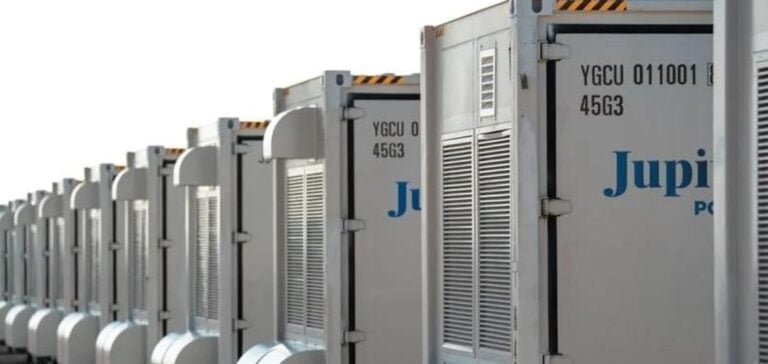Jupiter Power has reached a decisive milestone with the inauguration of the Callisto I Energy Center.
Located in the heart of Houston, this 200MW/400MWh facility reinforces the resilience of the ERCOT grid, vital for a stable and reliable power supply in a region where demand is growing rapidly.
The site, conveniently located on the former site of the HLP H.O. Clarke power station, marks an effective rehabilitation of obsolete infrastructure towards modern, sustainable solutions.
Callisto I is designed to meet urgent grid stabilization needs, particularly during peak consumption periods.
Its role is to ensure immediate availability of energy, crucial to avoid service interruptions, particularly in extreme weather conditions.
This installation is a direct response to recent Texas policies aimed at diversifying energy sources and integrating advanced technologies into the energy mix.
Expansion and impact on Texas energy strategy
The commissioning of Callisto I is part of Jupiter Power‘s wider strategy to increase storage capacity on the ERCOT network.
With this installation, Jupiter Power’s total capacity in the region now reaches 1.375MWh, positioning the company as a leader in large-scale energy storage in Texas.
The project is also designed to allow for future expansion, with an additional 400MW/800MWh of capacity already planned, further strengthening Callisto I’s impact on Houston’s electricity supply.
The integration of these storage capacities makes it possible to better manage energy flows from renewable sources, particularly solar and wind power, which are often subject to fluctuations.
By storing energy generated during off-peak periods and redistributing it during peak demand periods, Callisto I helps to balance the grid, reducing dependence on fossil fuels and increasing the state’s energy security.






















